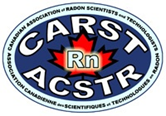The Need for Social Science in Radon Risk Communication
THE AIM OF THE SEMINAR IS TO HIGHLIGHT THE NEED FOR SOCIAL SCIENCE TO SUPPORT RISK COMMUNICATION.
Join a open digital seminar, held in English on ZOOM
March 24th, 2021
10.00 - 15.30 (Sweden Time)
(2am PDT, 3am MDT/CST, 4 am CDT, 5 am EDT, 6am ADT, 6:30am NDT)
We seek to discuss the following questions based on lessons learnt from radon:
What are the challenges for evidence-based risk communication? What type of social science would benefit risk communication? And how do we make holistic, humble and honest experts in risk communication?
Programme
Part 1. Setting the stage for radon risk communication in a Swedish context
10.00 Kristina Stenström, Lund University – Welcome and introduction to the Swedish national plan for radon
10.20 Swedish Agencies on communication challenges. Presentations by invited representatives:
- Joakim Thunborg, Swedish National Board of Housing, Building and Planning (Boverket)
- Cecilia Jelinek, Geological Survey of Sweden (Sveriges Geologiska Undersökning)
- Larisa Mileshina, Swedish Radiation Safety Authority (Strålsäkerhetsmyndigheten)
Part 2. Evidence-informed radon risk communication
11.00 Frederic Bouder, University of Stavanger – The quest for evidence-informed risk communication on radon and the Potsdam manifesto
11.15 Ullrika Sahlin, Lund University – Using the relational theory of risk to understand radon risk communication in a Swedish context
Discussion
11.45 Tanja Perko, Belgian Nuclear Research Centre – Cutting-edge radon risk communication and behaviour of people under radon risk: preliminary results of the RadoNorm project
12.00 Geertje Schuitema, University College Dublin – Integrating behaviour science in radon policy
Discussion
Lunch
Part 3. Risk communication as a scientific field
13.45 Mary Kay Rayens, University of Kentucky, (Conley, N., Haneberg, W.C., Stanifer, S., Wiggins, A.T., and Hahn, E.J.) – Using geologically-based radon potential maps to convey lung cancer risk
14.00 Christopher Rääf, Lund University – What do we teach radiation experts about risk communication
14.15 Ragnar Löfstedt, Kings College London – A passion about risk communication
14.30 Dominic Balog-Way, Cornell University – The evolving field of risk communication
14.50 Final discussion with all speakers and representatives from Swedish agencies (moderator Ragnar Löfstedt)
15.30 Concluding remarks Ullrika Sahlin
The program and how to register is found at this page
https://www.pi.lu.se/en/themes/expert/need-social-science-radon-risk-communication
Presented by: Ullrika Sahlin, Lund University, Sweden
on behalf of the Lund University Pufendorf IAS Theme EXPERT: The radiation safety expert in a post-trust era.
